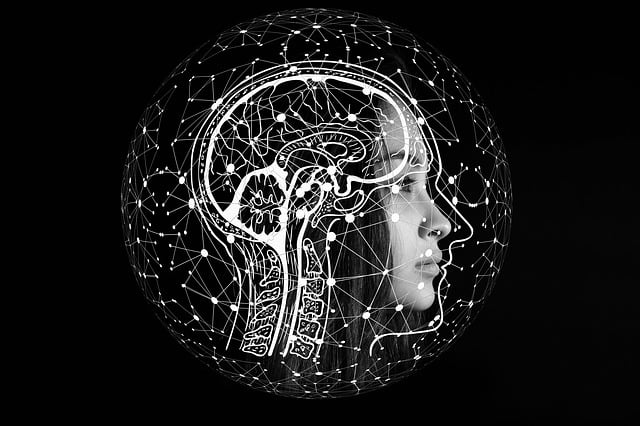Where Is Biological Clock Located
So, have you ever wondered where our biological clock is located? I mean, we always hear about how important it is for our sleep and daily rhythms, but where is it actually located in our body? Well, in this article, I’m going to dive into this topic and provide you with all the information you need to know!
If you’re curious to learn more about the location of our biological clock and how it affects our daily lives, you’re in the right place. Our biological clock, also known as the circadian clock, is a finely tuned system that regulates our sleep-wake cycles, hormone production, and overall bodily functions. In this article, we’ll explore the specific area in the brain where our biological clock is located, and how it communicates with the rest of our body to maintain our rhythm and balance. So, let’s dive in and uncover the mystery behind our biological clock together!

Overview of the Biological Clock
Table of Contents
The biological clock is a fundamental aspect of our body’s functioning, regulating various physiological processes and behaviors. It plays a crucial role in maintaining our overall health and well-being, influencing everything from sleep patterns to hormone secretion. Understanding the location of the biological clock is essential in comprehending how it functions and how it can be influenced.
Definition of the Biological Clock
The biological clock, also known as the circadian clock, refers to the internal mechanism that controls the timing of various physiological and behavioral processes in living organisms. It operates on a roughly 24-hour cycle and ensures the synchronization of bodily functions with the external environment, particularly the light-dark cycle.
Importance of the Biological Clock
The biological clock is of paramount importance for the proper functioning of our body. It regulates numerous processes such as the sleep-wake cycle, metabolism, hormone secretion, body temperature, and cognitive performance. Disruptions to the biological clock can lead to various health issues, including sleep disorders, mood disturbances, and even certain chronic conditions such as obesity and metabolic syndrome.
Factors Influencing the Biological Clock
Several factors can influence the functioning of the biological clock, including both genetic and environmental factors.
Genetic Factors
Research has shown that certain genes play a role in regulating the biological clock. Mutations or variations in these genes can lead to circadian rhythm disorders and disrupt the synchronization of bodily processes. Additionally, the inheritance of specific genetic traits can affect an individual’s sensitivity to light and their overall circadian rhythm.
Environmental Factors
Environmental cues, particularly light exposure, play a significant role in regulating the biological clock. The suprachiasmatic nucleus (SCN), located in the hypothalamus, receives input from the eyes’ photoreceptors and controls the release of hormones that coordinate the body’s daily rhythms. Light exposure, especially in the morning, helps reset the biological clock and promotes alertness and wakefulness during the day.
Circadian Rhythm and the Biological Clock
To understand the location of the biological clock, we first need to understand the concept of circadian rhythm.
Explanation of Circadian Rhythm
Circadian rhythm refers to the roughly 24-hour cycle that governs our physiological and behavioral processes. It is regulated by the biological clock and ensures that our bodily functions are aligned with the natural light-dark cycle. Circadian rhythms are present in almost all living organisms, including animals, plants, and even some single-celled organisms.
Interconnection with the Biological Clock
The biological clock is the central mechanism that controls and regulates circadian rhythms. It consists of a complex network of cells and structures, primarily located in the hypothalamus of the brain. The main pacemaker of the biological clock is the SCN, a tiny region about the size of a grain of rice.
The Brain and the Biological Clock
The brain plays a crucial role in the regulation and functioning of the biological clock.
Role of the Hypothalamus
The hypothalamus, a region located deep within the brain, is responsible for controlling various bodily functions, including the biological clock. It houses the SCN, which receives input from the retina and regulates the release of hormones that control sleep, wakefulness, and other circadian rhythms.
Interactions with Other Brain Regions
The biological clock does not function in isolation but interacts with several other regions of the brain. The pineal gland, located in the brain’s midline, produces the hormone melatonin, which helps regulate sleep and wakefulness. The biological clock also interacts with the amygdala and the hippocampus, influencing emotional processing and memory formation.

Suprachiasmatic Nucleus (SCN)
The SCN is a critical component of the biological clock and is located within the hypothalamus.
Function of the SCN
The SCN serves as the principal pacemaker of the biological clock, coordinating the body’s circadian rhythms. It receives input from the retina, specifically the specialized ganglion cells that are sensitive to light. The SCN then sends signals to various brain regions and peripheral organs to regulate their activity according to the external light-dark cycle.
Regulation of Sleep-Wake Cycle
One of the most important functions of the SCN is to regulate the sleep-wake cycle. It controls the release of hormones, such as melatonin, that promote sleepiness or wakefulness. The SCN helps synchronize our internal body clock with the external environment, ensuring that we feel alert during the day and sleepy at night.
Hormones and the Biological Clock
Hormones play a crucial role in the functioning of the biological clock.
Role of Melatonin
Melatonin is a hormone produced by the pineal gland and is regulated by the biological clock. Its secretion is closely tied to the light-dark cycle, with levels rising in the evening and peaking during the night. Melatonin helps regulate sleep by promoting feelings of drowsiness and preparing the body for rest.
Interplay with other Hormones
In addition to melatonin, other hormones such as cortisol, growth hormone, and thyroid hormones also undergo circadian fluctuations. These hormone fluctuations are regulated by the biological clock and influence various physiological processes, including metabolism, immune function, and cellular repair.
Effects of Disruption to the Biological Clock
Disruptions to the biological clock can have significant consequences for our health and well-being.
Jet Lag
Jet lag is a common disruption of the biological clock experienced by travelers crossing multiple time zones. It occurs when the body’s internal clock is out of sync with the external environment, leading to symptoms such as fatigue, sleep disturbances, and difficulty concentrating. Adjusting to the new time zone may take several days as the biological clock slowly adapts to the new light-dark cycle.
Shift Work Disorders
Shift work, particularly night shifts, can disrupt the biological clock and lead to various sleep disorders collectively known as shift work disorders. These disorders can result in insomnia, excessive sleepiness, and increased risk of accidents. Shift workers often struggle to maintain a regular sleep-wake schedule, as their work hours conflict with the natural light-dark cycle.
The Biological Clock and Aging
As we age, there are changes in our circadian rhythms and the functioning of the biological clock.
Changes in Circadian Rhythms
Older adults often experience changes in their sleep patterns and circadian rhythms. These changes may result in difficulty falling asleep, waking up earlier, or experiencing fragmented sleep. This age-related decline in the biological clock’s functioning can contribute to sleep disorders and decreased overall sleep quality.
Impact on Health and Well-being
Disruptions to the biological clock in older adults can have negative effects on their health and well-being. Poor sleep quality and irregular sleep patterns can increase the risk of chronic conditions such as cardiovascular disease, diabetes, and cognitive decline. It is crucial for older adults to prioritize healthy sleep habits and seek treatment for any sleep-related issues.
Social and Cultural Implications of the Biological Clock
The biological clock has significant social and cultural implications that extend beyond individual health.
Societal Expectations
Societal norms and expectations often revolve around a standardized work schedule and sleep patterns that align with the traditional 9-to-5 routine. However, not everyone’s biological clock is synchronized with these expectations. Those who naturally prefer later bedtimes and wake times may find it challenging to conform to societal norms, leading to increased sleepiness and decreased productivity during the day.
Biological Clock and Fertility
The biological clock also has implications for fertility and reproduction. In women, the biological clock refers to the window of time during which they are most fertile. As women age, their fertility declines due to changes in the quality and quantity of eggs. Understanding the role of the biological clock can help individuals make informed decisions regarding family planning and reproductive health.
Where Is Biological Clock Located – Conclusion
In conclusion, the biological clock is a complex system that regulates our body’s daily rhythms and coordinates various physiological processes. It is primarily located in the hypothalamus, with the SCN serving as the central pacemaker. The biological clock is influenced by both genetic factors and environmental cues, particularly light exposure.
Disruptions to the biological clock can have significant consequences for our health and well-being, including sleep disorders and increased risk of chronic conditions. Understanding the location and functions of the biological clock is crucial for maintaining optimal health and promoting overall well-being.

